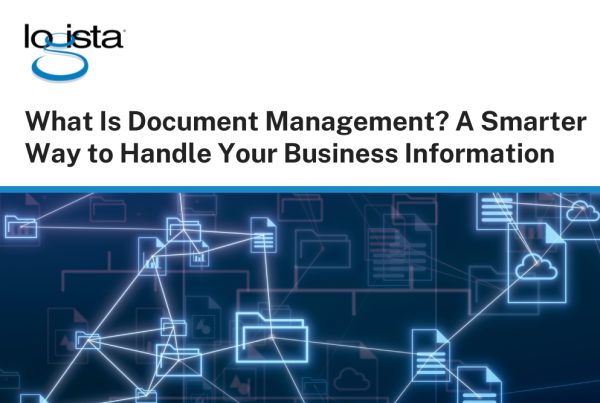When you think about the costs of document management, items like paper, toner, and maintenance mostly likely come to mind. While these expenses can be significant if left unchecked, there are other, less obvious costs that can quietly drain your company’s resources, time, and efficiency. These hidden costs often go unnoticed but can have a substantial impact on your business.

Here are four surprising ways unmanaged documents might be costing you more than you think:
1. Lost Productivity
One of the biggest, yet often overlooked, costs of unmanaged documents is lost productivity. Employees spend hours searching for misplaced files, trying to track down the right version of a document, or recreating content because the original cannot be found. Research shows that employees can spend up to 20% of their workweek searching for information. This means that if your documents are disorganized, your team is wasting valuable time that could be spent on higher-priority tasks.
When documents are scattered across different systems, devices, or even physical locations, the time lost in hunting down information quickly adds up. Imagine a team member needing to pull up a critical report before a meeting but struggling to find the right version. This not only wastes time but creates unnecessary stress and slows down decision-making.
2. Compliance and Legal Risks
In highly regulated industries, unmanaged documents can lead to costly compliance issues. Missing documents, incomplete records, or inconsistent data storage practices can put your company at risk of regulatory fines or legal action. In many sectors, regulations require businesses to maintain accurate and easily accessible records for audits or legal disputes. If your business can’t produce these documents when needed, the consequences can be severe.
Unorganized documents also increase the risk of data breaches. Misplaced files, unsecured storage, or inconsistent access control make it easier for sensitive information to fall into the wrong hands. A data breach can lead to expensive legal fees, lost customer trust, and reputational damage that takes years to rebuild.

3. Financial Waste
Managing documents manually is an expensive and inefficient process. From paper and printing costs to the storage space needed to house physical documents, the financial waste adds up. But the true cost comes when errors, delays, or miscommunication occur due to a lack of document control.
Consider this: missing or inaccessible documents can delay projects, cause errors in communication, or even result in costly mistakes in contracts, sales deals, or client relationships. These mistakes can translate into lost business, damaged partnerships, and expensive rework.
4. Inefficient Collaboration
Unmanaged documents create roadblocks for teams trying to work together. When documents aren’t centralized or version-controlled, it’s easy for team members to work on outdated information, leading to confusion and wasted effort.
A lack of document control slows down project timelines, creates miscommunication, and undermines team morale. With employees unable to access the information they need when they need it, collaboration becomes cumbersome and frustrating, rather than streamlined and efficient.
The Value of Document Management
The hidden costs of unmanaged documents can be significant. From lost productivity and compliance risks to financial waste and inefficient collaboration, these issues can slowly erode your business’s efficiency and bottom line. Investing in a document management system helps you eliminate these hidden costs by organizing, securing, and making information easily accessible.
About Logista Solutions
Logista Solutions is a nationally recognized leader in a broad range of technology management solutions. As one of the largest technology support providers in the U.S., Logista provides innovative and holistic solutions to help companies take control of their IT infrastructure and achieve better business outcomes. Popular services include Managed IT as a Service, VoIP and Unified Communications, Managed Print, Cloud Services and Asset Disposition.



